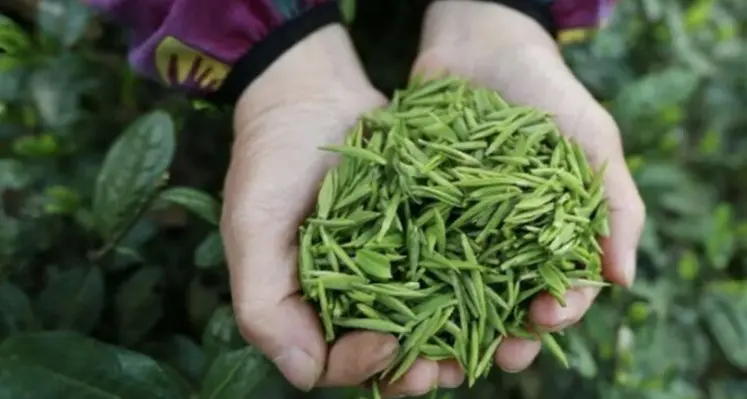Discover the cultural legacy and economic vitality of Duyun Maojian tea in Guizhou, China – a symbol of tradition and modern agricultural innovation
In the verdant landscapes of Duyun City, nestled within the Bouyei-Miao Autonomous Prefecture of Qiannan in southwest China's Guizhou Province, thrives a tradition as rich as the clouds that adorn its skies - the cultivation and crafting of Duyun Maojian tea leaves.
These leaves, steeped in history, were once revered as offerings to the imperial court, earning them the moniker "fish hook tea" for their resemblance to the curved shape of a fish hook when dried.
In a testament to its cultural significance, the meticulous techniques involved in the production of Duyun Maojian tea were enshrined on the UNESCO intangible cultural heritage list in 2022. And in recent times, the value of the regional public brand of "Duyun Maojian" soared to over 4.89 billion yuan (approximately US$676.78mn) in the preceding year alone.
Within the Qiannan prefecture, the tea industry serves as a beacon of prosperity, elevating farmers' livelihoods and driving rural rejuvenation. In 2023, the prefecture witnessed a remarkable surge in tea sales, with 60,800 tonnes of tea leaves sold, fetching a staggering 11.9 billion yuan, alongside an export value totaling 31.91 million yuan.
The heartland of Duyun Maojian tea production boasts an ideal combination of low latitude, high altitude, limited sunlight, and abundant clouds. This favorable ecological milieu, coupled with time-honored tea-making traditions, nurtures the distinctive quality of Duyun Maojian tea, characterised by impeccably shaped leaves and a captivating aroma.
Embracing a philosophy rooted in brand distinction, quality assurance, and flavor excellence, Duyun Maojian sets the benchmark for premium green tea in China, occupying a coveted position at the forefront of the industry.
Looking ahead, the Qiannan prefecture is poised to embark on ambitious initiatives aimed at modernising tea cultivation. These efforts include the development of digital tea garden bases, the implementation of a comprehensive product traceability system in Duyun Maojian's core production zones, and the transformation of traditional agricultural practices into modern methodologies. Furthermore, strategic endeavors will be undertaken to bolster the brand's market presence, ensuring that Duyun Maojian emerges as a cornerstone of regional industry, enriching the lives of its inhabitants in the process.




